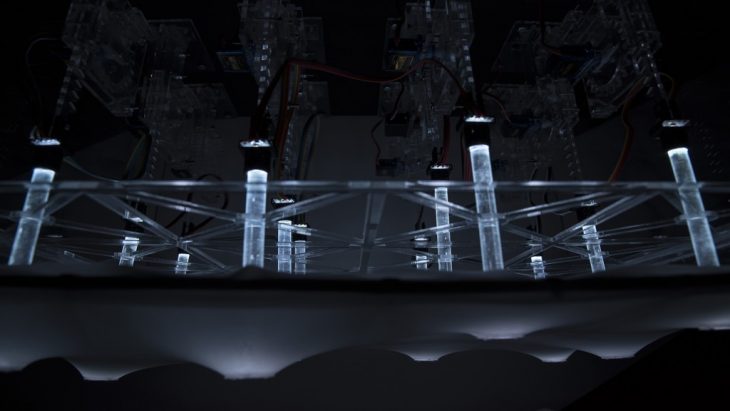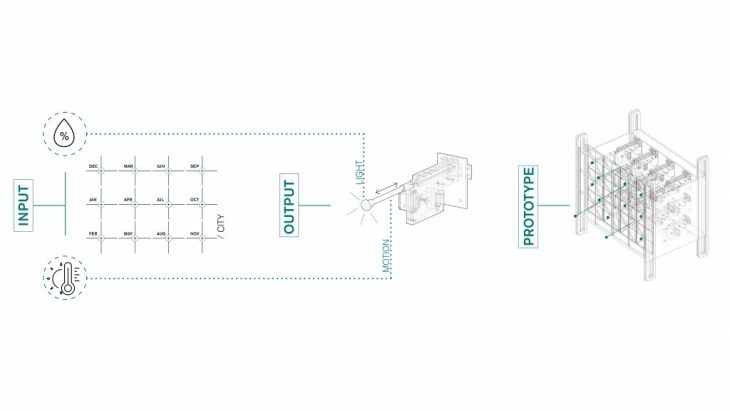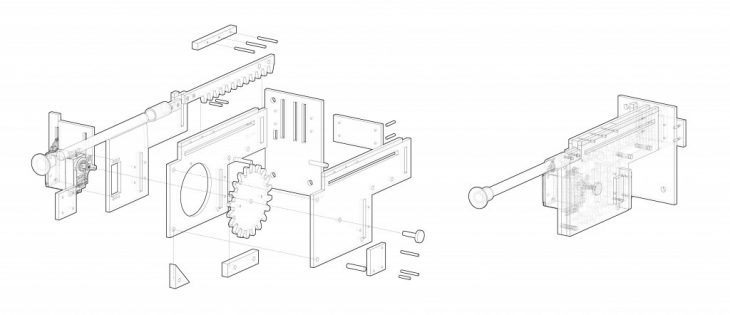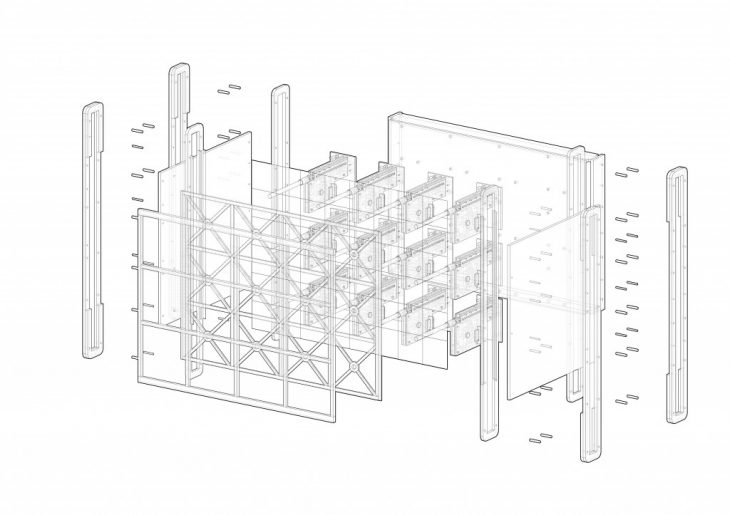_TENSILE SKIN IN SYMPHONY WITH WEATHER INFORMATION

_MODULAR . LIGHT . INFORMATIVE
WEABOT is a modular kinetic system designed to visualize any two types of data, simultaneously, by movement of physical points on a surface using actuators, and by changing visual patterns of colored lights, using LEDs.

_PROTOTYPE
WEABOT is an architectural component, assembled into a digitally interactive surface, partition, active wall or a ceiling.A breathing skin, the tensile surface of our intervention represents temperatures over an year from 12 different cities. Light patterns illustrate rainfall percentage estimates over the same period.

_CONCEPT DIAGRAM
Over recent years, technological advancements in sciences and related fields have added a whole new dimension to the convergence of digital and physical worlds. Data from physical world recorded with sensors, processed by digitally fabricated machines, integrated with processes, physically representing data of places and physically experienced by people.
Information can be sensed and analysed in the digital world with sensors, coding, processing tools and programming platforms to perform in our physical world, for example that of a surface. These are built out of programmable logic and sequence, which is a recent yet novel human intervention to ease various activities and are largely ubiquitous in our everyday lives.

_EXPLODED DIAGRAM.ACTUATOR
The data is fed into Arduino and Programming codes that actuate a programmed physical motion device with servo motors within. Hence, the otherwise flat surface transforms into a symphony of tensile variations. It evolves periodically showing multiple variations of physical points on surface and illumination with LEDs on a tensile fabric surface actuated based on a second set of data.

_EXPLODED DIAGRAM – WEABOT (ABOVE), WEABOT – VIDEO (BELOW)
WEA.BOT is a project of IaaC, Institute for Advanced Architecture of Catalonia
developed at Master in Advanced Architecture, in 2018 by:
Students_Yara Tayoun , Ivan Marchuk, Anton Koshelev, Sri Sai Tarun, Abhay Devidas, Yimeng Wei, Ashwin Varma Dandu
Faculty_Angel Munoz, Cristian Rizutti
